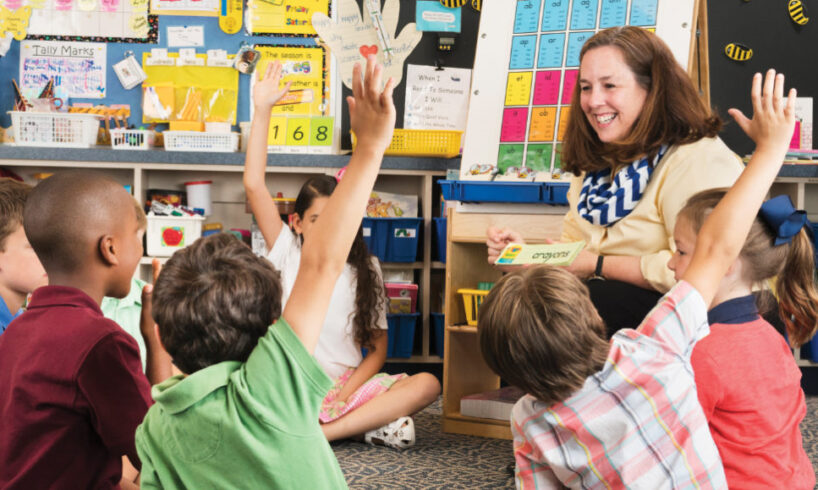
Australian early childhood educators feel burnt out and undervalued. Our research reports on more than 200 educators’ experiences during the COVID-19 pandemic, which exposed existing strains on the system and further eroded their well-being.
However, educators also identified three important ways their well-being can be restored. As one educator told us:
The pandemic has brought into sharp focus the challenging working conditions the profession faces. Educators have to navigate emotionally complex work. They work long hours, with poor pay and a lack of status or public recognition. Their opportunities for professional development or career progression are limited.
As a result, levels of work-related stress and burnout are high. Many are choosing to leave the sector.
Well-being is essential for educators to do their job well. Their well-being affects the well-being, learning and development of children across the country. A stable, qualified and healthy workforce is essential for families, communities and societies.
In our research, more than 85% of educators reported the pandemic had negative impacts on their well-being. However, three key findings detail how well-being can be supported. Educators talked about the importance of:
- self-care
- relationships with children, families and colleagues (and in educators’ personal lives)
- recognition for their essential work.
Self-care has to be a priority
Educators spoke about a renewed focus on self-care to support their own well-being.
Self-care involved more than exercise and meditation. Creativity was also a support for well-being, including activities such as baking, clay-making and knitting. Educators took proactive steps for their health, to strengthen their own well-being.
Service supports also matter. Counselling and professional development services were helpful. Educators made use of (mostly online) professional services such as Beyond Blue and the Employee Assistance Program. Some services provided additional resources to support mental health.
Supportive relationships lighten the load
Personal and professional relationships are key to educators’ well-being. Supportive professional relationships provided solidarity and shared understanding. The value of being able to unload, debrief or talk with others at work increased throughout lockdowns.
Despite reporting that the pandemic had a negative impact on their well-being, educators reported strong relationships with the children they work with. Teaching and engaging with children is central to educators’ well-being. Connection to other aspects of children’s lives is also important:
Recognise their essential work
Educators in our research rated their sense of contribution high. Workforce studies reflect this, showing educators value and recognise the importance of their work with children. But their professional contribution is not always acknowledged.
Acknowledgement at the local level was even more important to educator well-being during the pandemic:
Research in child development shows us the continuum of vital learning between birth and eight years of age. However, the Australian education system treats school and pre-school settings very differently. Educators felt ignored in government decision-making throughout the pandemic, and have long argued for early learning to be recognised as pivotal for life trajectories.
Let’s listen to educators
The pandemic has added to existing strains on the system. Educators’ well-being has continued to suffer as a result. As one educator said:
We know there’s a problem, we know the problem affects the community more broadly, but to support well-being effectively, we need to understand the experiences of educators themselves. We need to keep listening to them and act on what they’re telling us.
Here’s a good place to start: encourage self-care and provide access to resources; support and sustain relationships; acknowledge educators’ essential role in society and recognise that their well-being matters.![]()
This article was originally posted on Early childhood educators feel burnt out and undervalued. Here’s what we can do to help